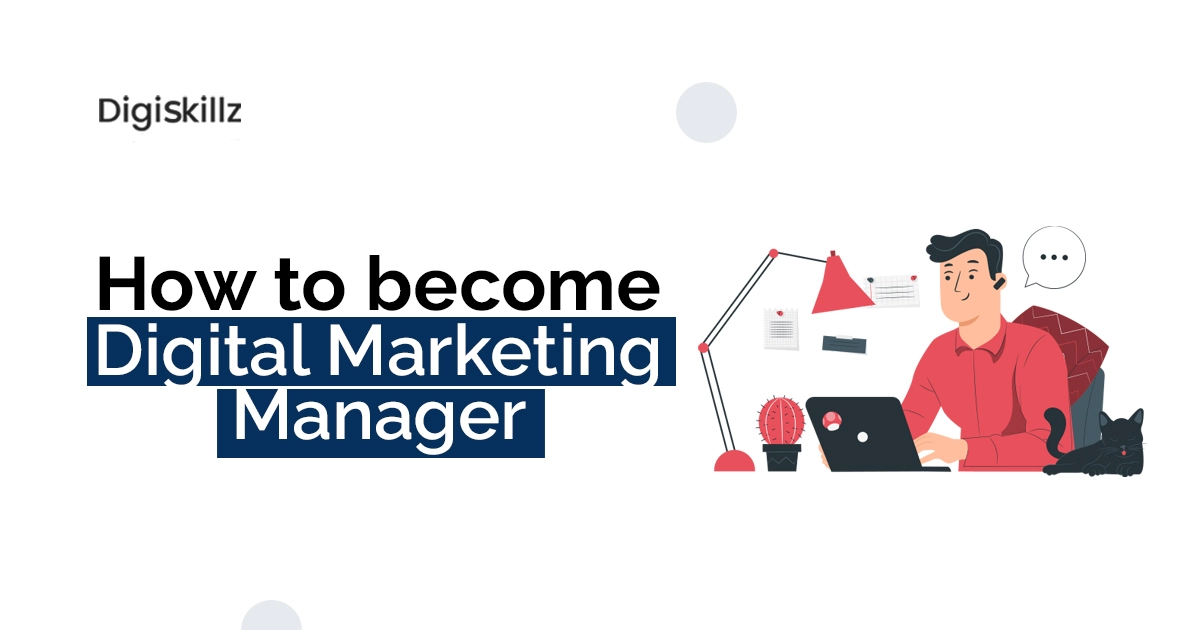Website developers play a crucial role in the ever-evolving digital landscape, as your website stands as the cornerstone of your online identity. Whether you’re an entrepreneur, a small business owner, or an individual professional, having the right website is pivotal for establishing credibility, engaging with your audience, and achieving your objectives. Choosing the right website involves more than just aesthetics; it requires a strategic approach that encompasses design, functionality, user experience, and technical expertise. This comprehensive guide will provide you with professional insights and detailed tips to help you navigate the complex process of selecting the ideal website that aligns with your vision and goals.
Table of Contents
Understand Your Needs

Website Developer: Crafting Engaging Online Experiences
Before you begin your journey into website development, it is essential to have a clear understanding of your specific needs. This involves defining the purpose of your website, identifying your target audience, and determining the features you require. Start by considering the primary goal of your website. Are you developing an e-commerce platform to sell products, a blog to share your insights, or a portfolio to showcase your work? Each type of website comes with distinct requirements that need to be carefully considered by your website developer.
For instance, an e-commerce site will necessitate robust shopping cart functionality, secure payment gateways, and advanced product management tools. On the other hand, a blog might prioritize content management capabilities and SEO features to enhance visibility. By defining the purpose, you set the foundation for all subsequent decisions in the development process, ensuring that the website meets your goals and the expectations of your target audience while guiding your website developer in the right direction.
Understanding who will visit your site is equally important. By knowing your audience’s preferences, behaviors, and their level of technical proficiency, you can tailor the design and functionality of your website to meet their expectations. If your visitors are tech-savvy, your website developer could include more advanced interactive elements, while a less tech-oriented audience might prefer simple, intuitive navigation. Additionally, make a comprehensive list of essential features, such as contact forms, social media integration, and multimedia elements like videos or image galleries. Having a well-outlined scope of work ensures smoother collaboration with your website developer, helping you get a final product that aligns closely with your vision and business goals.
Research and Evaluate Website Developers

Website Developer at Work: Crafting Engaging Online Experiences
Selecting the right website developer is one of the most critical decisions in your website project. A skilled website developer will bring your vision to life, while a less experienced one might fall short. Start by thoroughly reviewing the website developer’s portfolio to assess their style, capabilities, and the types of projects they have completed. Focus on projects similar to yours in terms of complexity and industry, as this will help you gauge their experience. Client testimonials and reviews are also essential in understanding the website developer’s work ethic and reliability. Whenever possible, reach out to previous clients to gather direct feedback on their experience working with the developer.
Additionally, reviewing case studies will provide valuable insights into how the website developer has approached and solved various challenges, highlighting their problem-solving skills and creativity. Ensure the website developer is proficient in relevant technologies and programming languages such as HTML, CSS, JavaScript, and any others critical to your project. They should also stay up to date with current design trends and best practices, including responsive design and user experience principles. A meticulous selection process will help you find a website developer who aligns with your vision and can deliver high-quality results, ensuring a successful partnership for your website project.
Define Your Budget
Budgeting is a fundamental aspect of website development that cannot be overlooked. Setting a realistic budget that reflects the complexity of your project and the expertise of the website developer is essential. Start by understanding what’s included in the cost of the project. This could include continuous maintenance, SEO, content generation, design, and development. Be vigilant about hidden costs by clarifying any additional expenses that might arise during or after development, such as extra features, licensing fees, or ongoing support requirements. While it might be tempting to opt for the cheapest option, doing so could lead to compromises in quality and functionality. It is crucial to invest in a reputable website developer who offers a balance between cost and quality.
Additionally, be prepared for potential budget adjustments, as unforeseen requirements or challenges might necessitate additional funds. By setting a well-defined budget and comprehending the cost implications, you can make informed decisions and avoid surprises during the development process.
Prioritise User Experience and Design

A website developer crafting engaging online experiences.
User experience (UX) and design are integral to the success of your website. A well-designed site by a skilled website developer not only engages users but also retains their interest. Ensure that navigation is intuitive, allowing visitors to find information quickly and easily. The design should reflect your brand’s identity and appeal to your target audience by incorporating consistent use of colours, fonts, and imagery for a cohesive and visually appealing look. With more users accessing websites from mobile devices, a website developer must implement responsive design, ensuring your site looks and functions well across smartphones and tablets.
To accommodate people with disabilities, a website developer should consider adding accessibility features, such as providing text alternatives for images, enabling keyboard navigation, and using readable fonts. Additionally, website performance is critical; a slow-loading site can drive visitors away. A website developer can optimise images, leverage caching, and streamline code to improve load times. Prioritising these aspects will ensure that your site delivers an excellent user experience while meeting design expectations.
Evaluate Technical Expertise
Technical expertise is a cornerstone of effective website development. A well-developed site should be both visually appealing and technically robust, which is why choosing the right website developer is crucial. Ensure that the website developer is proficient in relevant programming languages and technologies, such as HTML5, CSS3, JavaScript, and backend languages like PHP or Python. Robust security measures are essential to protect your site from potential threats, including the implementation of SSL certificates, secure login protocols, and regular updates.
Proper SEO practices are also vital for ensuring your site’s visibility in search engines. The website developer should be well-versed in on-page SEO techniques, such as meta tags, keyword optimization, and structured data. If you are using a Content Management System (CMS) like WordPress, ensure that the website developer has experience in customising and optimising it. They should be able to implement plugins and tools that enhance the CMS’s functionality. Technical optimization is crucial for performance, including optimising code, images, and server settings to ensure fast load times and smooth operation. By selecting a website developer with strong technical skills, you ensure that your website performs well, remains secure, and ranks effectively in search engines.
Communication and Support

A skilled website developer creating engaging web solutions.
Effective communication and ongoing support are essential for the success of your website project. Establishing clear channels of communication with your website developer ensures a smooth workflow and timely updates. Regular feedback meetings help maintain project momentum, allowing any issues to be addressed promptly. It’s important to ensure that the website developer follows a structured project management approach, including defined timelines, milestones, and deliverables. This approach fosters accountability and keeps the project on track.
In addition, discuss post-launch support and maintenance with your website developer to ensure you receive assistance with updates, bug fixes, and any issues that arise after the site goes live. Request comprehensive documentation for your website, such as user manuals, code comments, and instructions for managing content.Future upgrades and troubleshooting will greatly benefit from this material.Professionals highlight the importance of both clear communication and robust support from your website developer to ensure your website remains functional and up-to-date long after its launch.
Assess Content Management Systems (CMS)

A dedicated website developer creating innovative web solutions.
A Content Management System (CMS) is crucial for managing your website content effectively. Choosing the right CMS can significantly impact your site’s functionality and ease of use. Popular CMS options include WordPress, Joomla, and Drupal, each with its own strengths and suitability for different types of websites. When selecting a CMS, consider its ease of use; it should allow you to manage content without requiring extensive technical knowledge. Additionally, the CMS should offer flexibility in terms of customization, with support for themes, plugins, and modules that can enhance your site’s functionality. A knowledgeable website developer can help you navigate these options effectively.
Moreover, it’s essential to choose a CMS that can scale with your business, accommodating increased traffic and additional features as your needs evolve. A CMS with a strong community can also be beneficial, providing access to troubleshooting support and additional resources. Having a website developer to guide you can ensure that you select a CMS that aligns with your specific needs, offering the right balance of functionality, flexibility, and ease of use for long-term growth and success.
Test and Review
Thorough testing and review are critical steps for every website developer before launching a website. Conduct usability tests to ensure that the site is easy to navigate and user-friendly. Obtain feedback from actual users to identify any issues or areas for improvement. It is essential for website developers to test their websites across various browsers and devices to ensure compatibility, addressing any inconsistencies in appearance or functionality. Confirm that all features and functionalities, such as forms, links, multimedia elements, and interactive components, operate as intended.
Additionally, website developers should evaluate the site’s performance under different conditions, such as varying traffic loads, to monitor load times, responsiveness, and overall performance. Address any bugs or issues identified during testing, ensuring that all fixes are thoroughly tested before the final launch. A comprehensive testing and review process is crucial for website developers to guarantee that their websites are fully prepared for a successful launch, ensuring smooth functionality and an optimal user experience.
SEO and Performance Optimization

A website developer focused on creating an engaging and efficient online experience
Launch and Monitor
The launch of your website is an exciting milestone that requires careful planning and execution by a skilled website developer. Develop a strategic launch plan to maximize your site’s impact, including promotions, announcements, and outreach efforts to drive traffic. Utilize monitoring tools to track your website’s performance post-launch, focusing on traffic, user interactions, and potential issues.
Collect feedback from users and stakeholders to identify areas for improvement, addressing concerns or suggestions to enhance functionality. Regular maintenance is crucial for keeping your website in top shape; schedule updates, security checks, and performance reviews to ensure continued success. Professionals recommend a well-planned launch and ongoing monitoring by a website developer to ensure that your site performs effectively and meets your objectives.
Conclusion
Choosing the right website developer is a critical decision that requires careful planning and consideration. From understanding your needs and evaluating developers to focusing on user experience and technical expertise, each step plays a vital role in creating a successful online presence. By following insights and tips from professionals, you can make informed choices and ensure your website meets immediate requirements while supporting long-term goals. A well-designed and functional website is more than just a digital asset; it’s an investment in your success.
Prioritising quality, usability, and ongoing optimization will help you create a website that stands out in the digital landscape and drives meaningful results. By taking a strategic approach and leveraging professional advice from a skilled developer, you can navigate the complexities of website development and achieve an online presence that meets your objectives and resonates with your audience.
Author-Abdusalam
Learner of DigiSkillz, Digital Marketing Institute in Kochi.











Leave A Comment